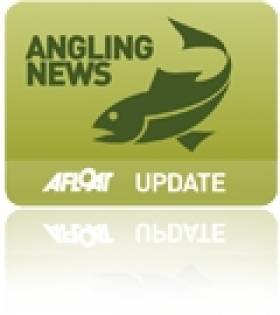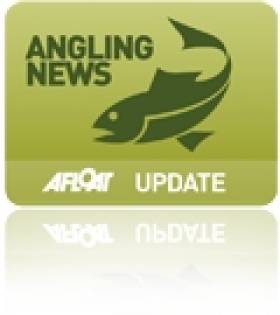Displaying items by tag: Dodder
The Irish Nautical Trust has launched the “Liffey Sweeper”, a new environmental vessel designed to collect large amounts of non-natural debris such as plastic, cans and bottles from the city’s waterways.
The newest addition to Dublin’s nautical fleet is part of the River Liffey Cleaning Project, the brainchild of Irish Nautical Trust Director Jimmy Murray, whose ambition is to remove all floating debris from the Liffey, the Dodder and the Tolka estuary.
“This is an ecological and environmental development research project which has been designed over the last two years to help prevent the accumulation of all non-natural debris such as plastics, cans and disposable coffee cups, and to stop it getting into the sea and the Dublin Bay biosphere, where it affects marine wildlife”, explains Jimmy Murray.
The Liffey Sweeper will initially operate four days a week, sweeping from the upper part of the River Liffey at Butt Bridge to the mouth of the River and Clontarf area, including the basins and all the shipping berths within Dublin Port.
 Once lifted from the water, debris is separated and sorted into designated recycling bins and the balance of the assorted materials Photos: Conor McCabe
Once lifted from the water, debris is separated and sorted into designated recycling bins and the balance of the assorted materials Photos: Conor McCabe
Fitted with a deep cage, the Liffey Sweeper is able to catch a range of material from the water, including floating plastic and debris just below the surface. Once lifted from the water, debris is separated and sorted into designated recycling bins and the balance of the assorted materials, i.e. that which cannot be recycled, is removed by a licenced contractor for treatment before disposal at the Covanta Waste to Energy Treatment Plant on Poolbeg, while any organic matter collected is returned to the water.
 Fitted with a deep cage, the Liffey Sweeper is able to catch a range of material from the water Photo: Conor McCabe
Fitted with a deep cage, the Liffey Sweeper is able to catch a range of material from the water Photo: Conor McCabe
Its launch follows a successful grant of €180,000 from the Dublin Waste to Energy Community Gain Projects Grant Scheme which enabled the Irish Nautical Trust to purchase the former environmental vessel from the UK. The pilot project is further supported involving collaboration between the Irish Nautical Trust, Dublin Port Company, University College Dublin, School of Biology and Environmental Science, Dublin Waste to Energy/Covanta, and Dublin City Council. The Irish Nautical Trust is currently part of Google’s Employment Task Force which works with a wide range of local community groups and has also approached Google as a potential partner for the project.
The launch coincides with Earth Day 2021, which continues its focus on the ongoing climate emergency, with events taking place virtually due to Covid-19 between April 20th-22nd. This year’s theme of “Restore Our Earth” sees Jimmy and the Liffey Sweeper urging people to leave no trace while enjoying the amenities of Dublin Bay.
 Operating four days a week, the new vessel will sweep from the upper part of the River Liffey at Butt Bridge to the mouth of the River and Clontarf area, including the basins and all the shipping berths within Dublin Port, preventing debris from reaching the sea and the Dublin Bay Biosphere Photo: Conor McCabe
Operating four days a week, the new vessel will sweep from the upper part of the River Liffey at Butt Bridge to the mouth of the River and Clontarf area, including the basins and all the shipping berths within Dublin Port, preventing debris from reaching the sea and the Dublin Bay Biosphere Photo: Conor McCabe
“We’ve noticed more disposable coffee cups, plastic bottles and food packaging appearing in the River during lockdown. With bank holiday weekends and the summer months approaching, I would really encourage people to plan ahead and be prepared to bring your rubbish home. Everyone’s contribution adds up and can make a difference”, said Jimmy Murray.
“We call it the river that never sleeps. Every six hours, the tide changes and even while we are asleep, whatever is coming down the Liffey will float down and out to sea or else get caught up around port berths, slipways, steps and other areas where it can get trapped. Our goal is to prevent that from happening by gathering enough data on the debris in the water to put together a programme to prevent any debris entering the Dublin Bay Biosphere.”
“This project is badly needed,” Jimmy concludes. “The Liffey is an extension of the streets; a lot of the waste that is on the city’s streets ends up in the river, whether it is thrown in or blown in by nature and being carried out to sea. This project is a win for the environment, the beaches, the wildlife and the local communities, in terms of cleaning them up and hopefully creating employment with an expanded programme in the near future.”
Salmon Return to the Tolka After More Than a Century
Dublin has yet another thing to celebrate with the news that wild Atlantic salmon have returned to what was long regarded as the dirtiest of the capital's inland waterways.
The Irish Independent reports that the fish have been spotted along the banks of the Tolka between Glasnevin and Finglas for the first time in at least 100 years.
Efforts to clean the river in recent years, as well as the removal of man-made weirs, are thought to have aided the recovery of the Tolka, which now provides plentiful nutrients for migratory fish.
Atlantic salmon in particular are considered by scientists to be a 'bio-indicator' in that they require a very high standard of water, so their presence in a given area defines it as a healthy environment.
The Tolka joins the Liffey and the Dodder in the list of Dublin rivers hosting thriving stocks of young fry in what has been a bumper year for salmon angling across the country.
The Irish Independent has more on the story HERE.
Minister Lenihan Supports Environmental Initiative on Dublin's River Dodder
In preparation for the field trip Des Chew, Project Manager of the Dublin Angling Initiative visited the school and gave the pupils a talk on water quality, the lifecycle of trout and the art of fly-fishing. The pupils then participated in a field trip along the River Dodder, starting at Rathfarnham shopping centre and finishing at the confluence of the Dodder and Owendore rivers at Bushy Park. Minister Lenihan was joined by TV celebrity and angler Derek Davis.
Fisheries staff from Dublin Angling Initiative and Inland Fisheries Ireland took kick samples and were ably assisted by Gerry Heaslip and Brian McDonagh of the Dodder Angling Club. The children identified invertebrates and their delight could be heard far and wide as they found many different species of stonefly and caddis fly! Looking at water pollution indicators, the children could establish that the presence of these different types of invertebrates indicated the good water quality in the river. This is not surprising given the very healthy stock of wild brown trout in the river.
Minister Lenihan, remarked:
'It is wonderful today to see the young people out learning about their local river. The River Dodder is a very important river in south Dublin, it has good water quality, contains a healthy population of wild brown trout and is a wonderful angling resource.
This is in no small part due to the excellent relationship that the Dublin Angling Initiative and Inland Fisheries Ireland have with the Dodder Angling Club'.
Following this the children were given information packs on fish species, invertebrates and fish species posters. St. Pius X School has participated in Inland Fisheries Ireland's 'Something Fishy' programme in previous years and were thrilled to take part in such an exciting field trip of their local river.
The 'Something Fishy' project was developed by Inland Fisheries Ireland (formerly the Central and Regional Fisheries Boards) in association with Blackrock Education Centre and has proved a highly successful way of encouraging young people to take an interest in Irish fish species, their local environment and habitat. In 2010 almost 1,000 young people participated in the Something Fishy programme within the Eastern River Basin District.






























































